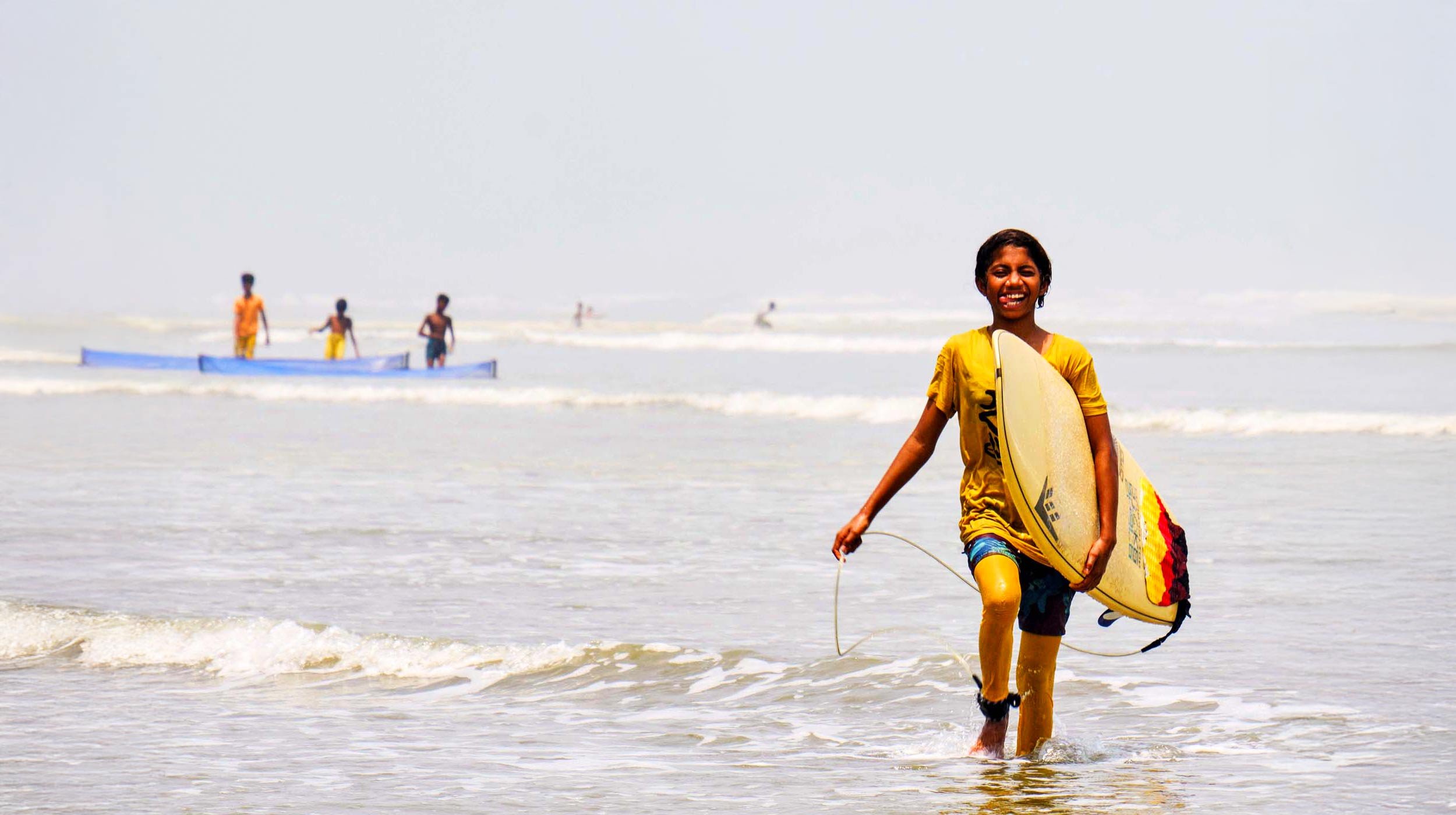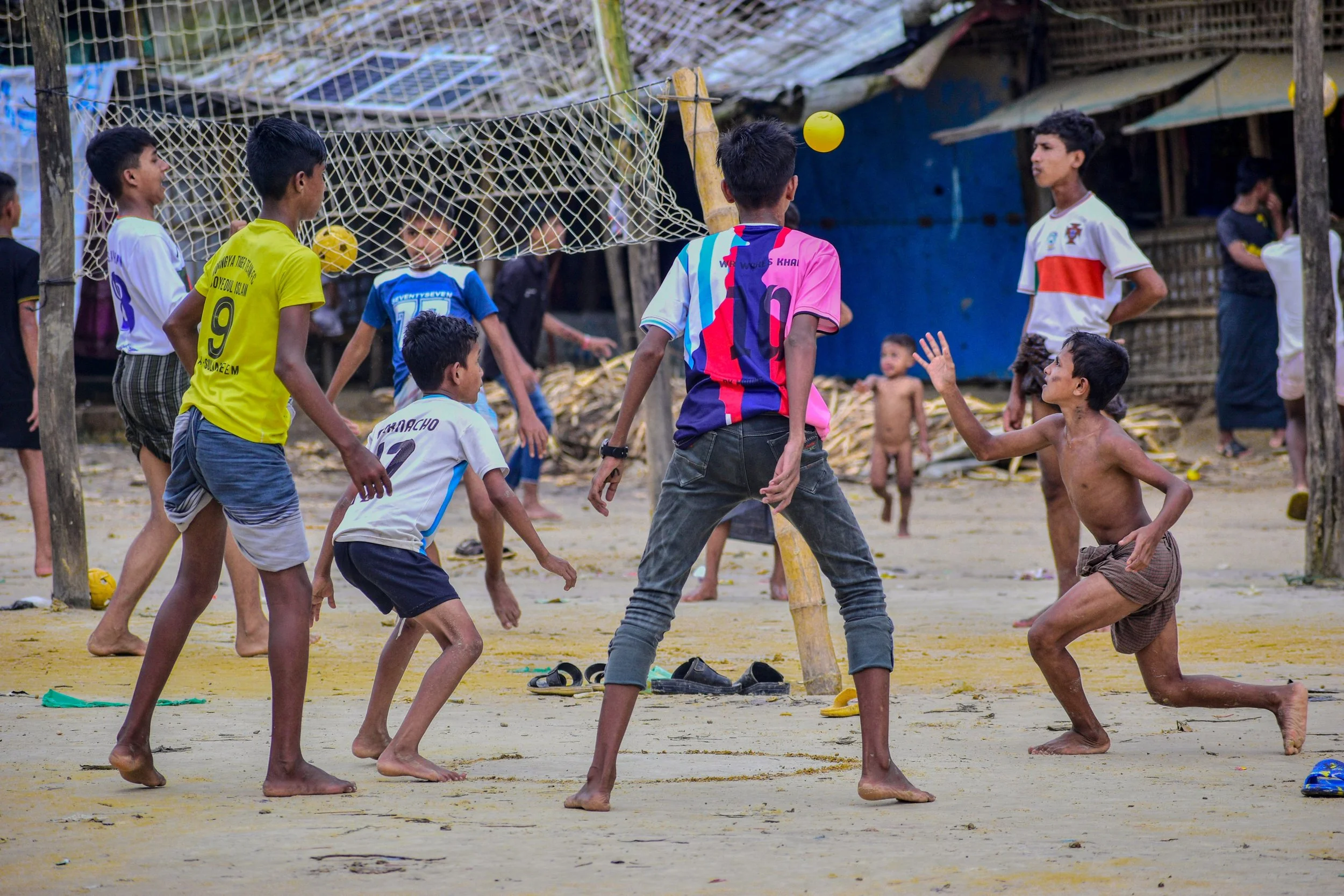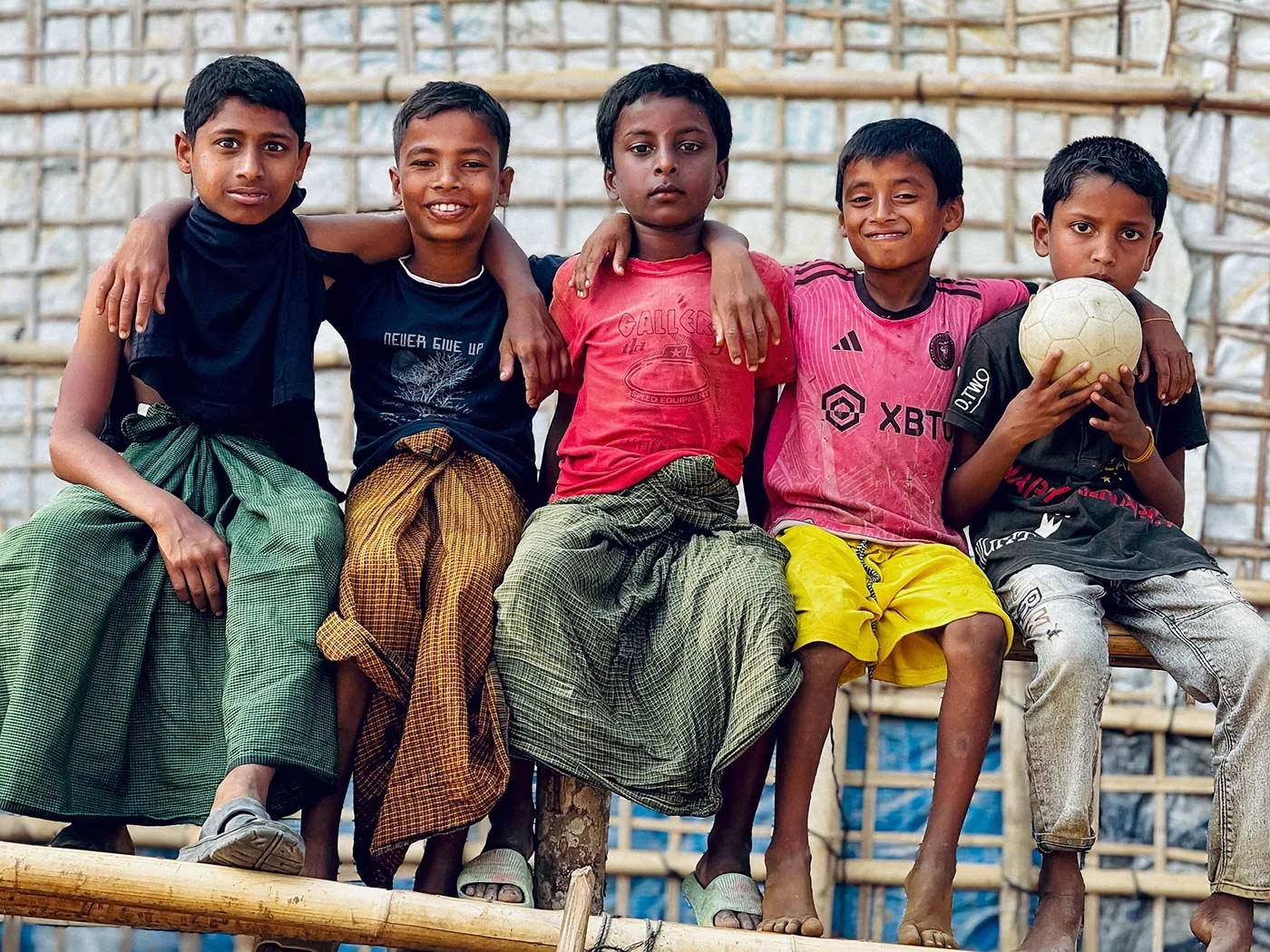
Movement Heals
Sports Connects
The Challenge
For millions of displaced young people, sport and play are out of reach. Camps and settlements lack safe spaces, equipment, and trained coaches. What should be a normal part of growing up — movement, teamwork, joy — is often lost.
Instead, children face violence, exploitation, child labour, and early marriage. School fades. Hope fades. And the absence of movement becomes emotional too — feeding despair, depression, addiction, and dangerous migration.
But sport can flip the script. With the right support, it brings confidence, connection, and purpose. It opens up new paths — helping young people become leaders, athletes, and role models in their communities and beyond.
Our Programs
MiR launched its first programs in Bangladesh, in Cox’s Bazar — a coastal district bordering Myanmar. Since 2017, over a million Rohingya Muslims have fled genocide in Myanmar, crossing rivers and marshes with little more than the clothes on their backs. MiR works with both refugee and host communities in this region.
MiR coaches are currently working with over 130 children and youth across eight communities in two Rohingya refugee camps. Each group trains at least twice a week for 2.5 hours.
Recognizing the cultural norms that separate girls and boys —especially after puberty — we’ve worked closely with parents and community leaders to create safe, culturally appropriate spaces where both can train and thrive.
Women’s Empowerment Through Movement
Sessions with girls and women are held inside family shelters – which are not ideal, but this is the reality and the most people live in. While we aim to expand into larger facilities one day, we know that for now, we must bring movement to them, where they are in or near their homes. We believe that once we establish a workable training programme in these small spaces we can roll it out to reach many many more girls.
Each session begins with calm and grounding-settling in, meditation, warmups, then building strength and flexibility through basic yoga and movement exercises. Then comes the fun: spikeball (also known as roundnet). It’s fast, social, and builds confidence, teamwork and coordination. We're working toward a future where women and girls can compete in their own league—cheered on by their peers.
The impact is clear: women report better sleep, less pain, and new strength in their bodies. Parents tell us there’s nothing else like it.
Fitness, Vitality & Skills for Boys and Men
Our work with boys and young men begins with the fundamentals: building physical capacity through structured, progressive training. In the dense, crowded camps, space is limited—so we focus on sports like volleyball, spikeball, and the local game of chalong, which thrive in smaller environments.
Each session develops essential athletic competencies: flexibility, balance, upper and lower body strength, core stability, and stamina. These foundations matter. They’re the building blocks of athletic excellence—and of a strong, healthy life.
Over time, we aim to guide our students from beginners to competitive athletes. That means bringing in skilled coaches—from both local and international leagues—to lead advanced skills sessions, inspire ambition, and raise the level of play. Our vision is to form high-performing teams that can compete, represent, and grow.
But it’s about more than sport. Our coaches are also mentors and role models who help shape character, dignity, and purpose. At the end of each session, we take time to talk, reflect, and connect, building a culture of respect, resilience, and leadership. Monthly themes will explore topics like reducing violence against women and girls, resolving conflict, and leading within the community.
Coastal Communities: From Survival to Strength
Movement in Refuge is launching a new program across this coastline—starting with lifesaving skills and fitness for young people in the communities most at risk. Every program begins with first aid and basic ocean safety, followed by progressive swim training designed to build real competency, confidence, and survival skills.
From that foundation, we train for strength, flexibility, balance, and stamina—core athletic capacities that open the door to a wide range of sports. Once students are strong and confident in the water, we begin to introduce surfing, followed by beach volleyball, roundnet, football, and cricket. Each sport builds on the same physical fundamentals, while offering new excitement, pride, and potential for excellence
Our Vision: Safe Water, Strong Futures
Stretching south from the city of Cox’s Bazar to the Naf River at the Myanmar border lies a beautiful but under-resourced coastline, home to dozens of fishing villages and informal settlements. Here, poverty is widespread, school dropout rates are high, and child marriage remains common for girls.
But one of the most silent and devastating threats is drowning.
According to the World Health Organization, drowning is the leading cause of death for children under five in Bangladesh. Along this stretch of coast, drowning incidents occur regularly—yet most go unreported. Lifeguard coverage is limited to a short section of tourist beach, leaving entire communities without basic water safety protection, first aid training, or structured swim education. We're working to change that.
Building a Pathway to Excellence
This isn’t just about fun. It’s about creating a structured, long-term pathway where children from remote and neglected areas can rise from basic movement to competitive play, and eventually, to semi-professional leagues or coaching roles themselves.
To achieve this, we’re calling out for experienced international and local coaches. Women for girls, and men for boys who bring the highest levels of training, discipline, and care. They will inspire, mentor, and equip the next generation of young athletes, leaders, and lifesavers from within these communities.
Powered by People Who Love to Move
MiR is more than a humanitarian project — it’s a people-powered movement.
Our work is made possible by a global community of individuals who understand the joy and power of movement. From early-morning yogis and weekend hikers to professional athletes, retired coaches, fans in massive stadiums and everyday lovers of sport — we are building a network of people who believe that moving the body is essential to health, hope, and human spirit.
As governments around the world retreat from international aid, MiR invites people everywhere to step forward. Through small monthly donations, direct outreach, or even coaching visits, we are connecting communities across continents — person to person, coach to coach, teammate to teammate.
The Results
MiR is taking action to restore movement, hope, and opportunity through:
Theory of Change
Because millions of displaced young people lack safe access to sport and movement, we train local coaches—through trusted grassroots partners—funded by a global community of sporting enthusiasts, to deliver lasting change in refugee camps, border zones, and host communities, for a generation: the time it takes to build a champion or an unstoppable team.














